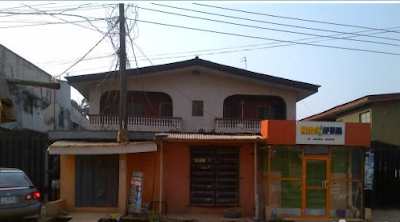Investigations reveal that as at 2011, only 37% of Nigerians were house owners. Providing relevant and timely information to potential investors and to the general public can help increase this figure. Also, there is a need to break down the barriers to investing in the sector by simplifying the process. These steps include
1. Research
If you are interested in the property market, there are great platforms to find information you need, including the mass media, online and around you. Talk to locals. Use the internet for your research as its an avenue for you to get the much needed information at the palm of your hand. You have to understand it before you can get into it. It is important to note that Real Estate information in Nigeria is scarce and thus requires effort on your part, whether you are in the country or abroad.
2. Decide on the property market you wish to invest in.
Based on your research and depending on your goals, pick a sector that will benefit you more. You could chose from office to industrial property, retail centres or residential units. According to a developer in this BusinessDay article, a shopping mall in Nigeria is sold off before it is even complete while residential units take several years to actually sell out.
3. Which real estate market is blooming?
Decide on areas where a highway is constructed which eases traffic and the working class tends to move in that direction, or areas with newly constructed facilities making it a worthy cause to build high-rises to rent out to them.
4. Decide on where and how you will get finances
It could be from friends and family or financial institutions. You could also finance it yourself. When you approach the bank or institution, make sure you know what you are doing. Your plan has to be viable enough to make them give you the money. As stated here last time, the Nigerian government secured a $300 million loan from the World Bank to establish Nigerian Mortgage Refinance Company (NMRC) at the beginning of 2014. Hopefully its effect in terms of liquidity and bank lending is being felt now. You could benefit.
Remember that property in the better parts of Lagos and similar upscale urban areas is as expensive as in some Western markets.
5. Get the details right
You can never be too careful. Talk to industry experts, a lawyer and make sure you get everything ironed out right from the federal government requirements down to the owner’s issues. It is another known fact that property scammers run amok in our big cities; pretending to sell houses whose owners are away, complete with fake title deeds. Beware. Get the advice of relevant professionals such as surveyors who will check out the property and advise you accordingly.
6. Know your Law
You have the right to own property as a Nigerian. All the same, the 1978 Land Use Act gives state governments authority over land within their borders. They in turn avail it to you after an intricate and bureaucratic process. You will then receive a certificate of occupancy to actually use the land i.e. sell it or develop it. Your right can also be denied if you are living in a place that is not your area of origin, which can be very subjective at the very least and can create ethnic tension.
Mistakes can be made in the real estate market in Nigeria as in anywhere else and that is why one needs to practice patience and wise resolve. Remember, Nigeria is a developing market with great potential in sight.






.jpg)








